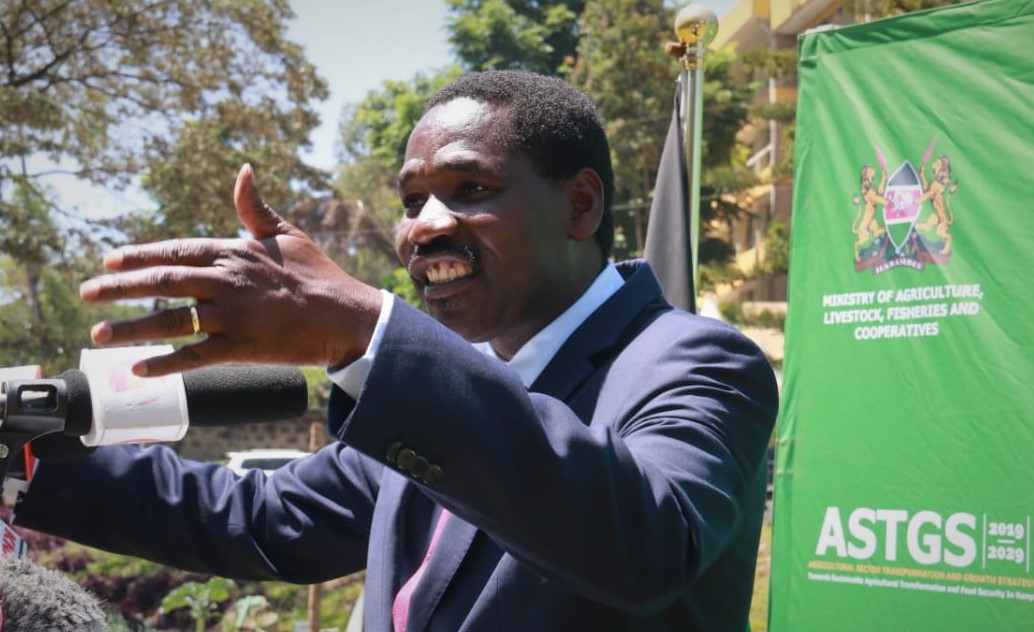The government has given a one month notice for tea auction in the country to migrate to the electronic system where all tea will be sold.
Ministry of Agriculture, livestock, fisheries and cooperatives Cabinet Secretary (CS) Peter Munya said that the regulator will in a months’ time inspect the auction readiness to ensure compliance and reliability.
“We want all the tea to be sold electronically where all the players can access the system in a transparent manner. The requirements of the tea act 2020 are that there should be efficiency and accountability with access to all stakeholders in matters prices, quantities and type of tea being sold,” said Munya.
Munya speaking on Thursday at Kilimo house grounds during the launch of public participation for tea elections regulations under the tea act 2020 said that nothing stops the government from licensing other tea trading platforms and so if the Mombasa tea auction does not comply with the law within a month other players will be licensed to operate.
“I you look at our draft law on coffee, nothing stops the Coffee auction in Nairobi to auction other commodities. We are already in law if we allow the coffee auction in Nairobi to start trading maize, sorghum, tea and any other commodity,” explained Munya.
The CS added that the payment regulations will be ready in a weeks’ time and they will give procedures on the periods which farmers will be paid 50 percent when their tea is traded at the auction.
“The Tea Act, 2020 came into force on the 24th December 2020 when the Tea Bill 2018 was assented to by the President of the Republic of Kenya, H.E Uhuru Muigai Kenyatta, having gone through all the necessary processes, including stakeholder consultations, public participation and approval by both the National Assembly and the Senate. The enactment of the Tea Act, 2020 is a culmination of a long drawn process towards reforms in the tea sector whose objective is to entrench good governance and efficiency in the tea value chain. Further the reforms are geared towards a sustainable and profitable tea sector, particularly for the primary stakeholders – tea farmers,” said Munya.
Munya explained that the Tea Act, 2020 is an Act of Parliament enacted to regulate, develop and promote the tea industry with some of the key provisions in the Act including the establishment of the Tea Board of Kenya as a State Corporation under the Ministry of Agriculture, Livestock, Fisheries and Cooperatives.
“The act also covers remuneration paid to a tea broker and it will not exceed 0.75 percent of gross sales by the broker; Remuneration for services rendered by a management agent not to exceed 1.5 percent of net sales value of the tea sold per year; Staff costs for personnel seconded to the factory limited company to be borne by the management agent,” explained Munya.
The CS added that the act entrails that tea brokers, buyers and auction organizer should ensure that the proceeds from the sale of tea are remitted to the tea factories accounts within 14 days from the sale at the auction.
Munya said they are finalizing a memorandum on the Value Added Tax (VAT) Act to make sure that tea and coffee are zero rated insisting that it has been a very anomalous position where all other food crops don’t pay VAT since it is a levy that reduces the farmers earning and complicates the market.
“The VAT on tea and coffee is one of the factors that have been making it very difficult for people to invest in value addition because packers are not allowed to buy tea from the auction under the VAT act and they can only buy it from people who have bought it at the auction,” said Munya.
